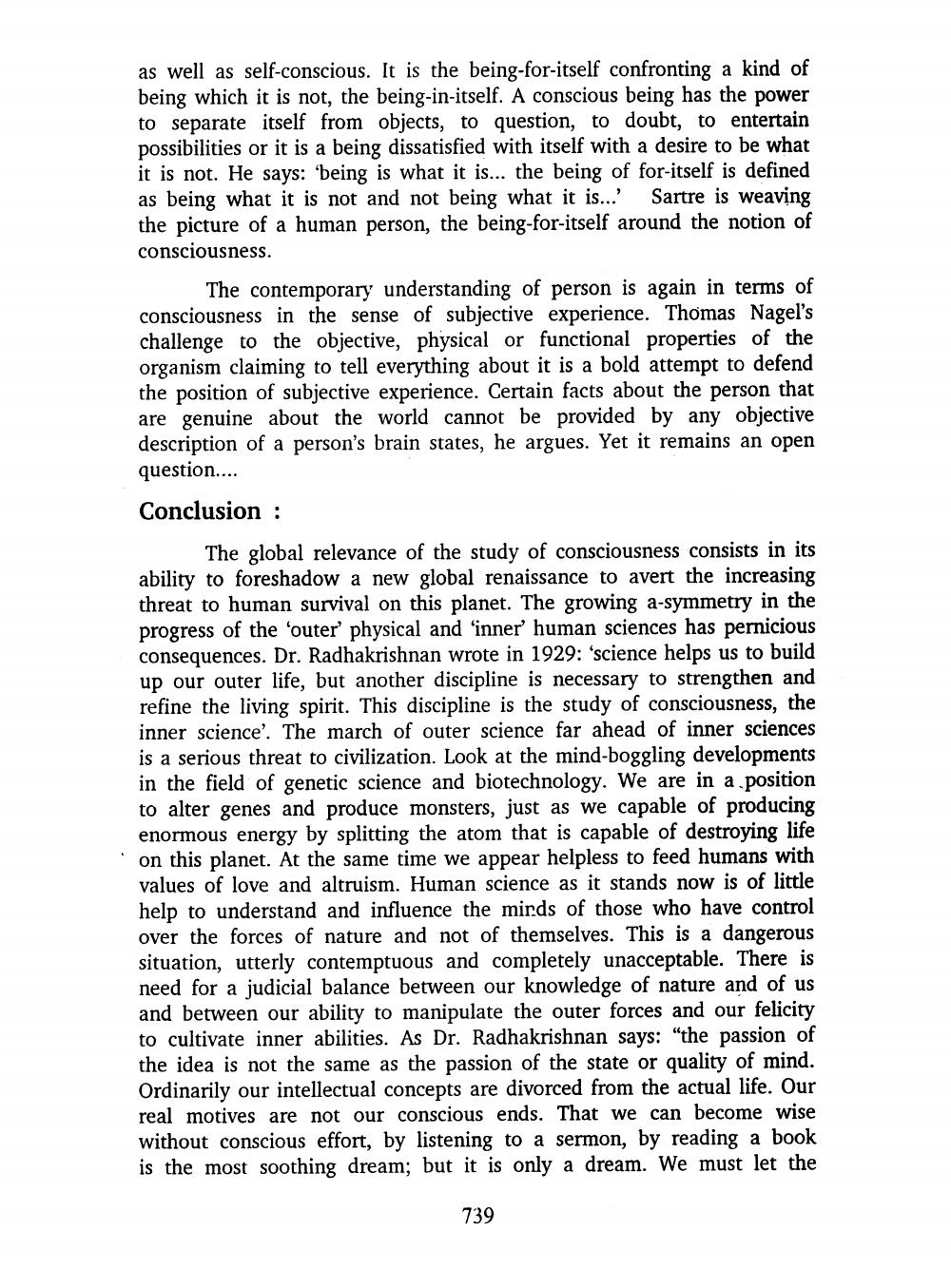________________
as well as self-conscious. It is the being-for-itself confronting a kind of being which it is not, the being-in-itself. A conscious being has the power to separate itself from objects, to question, to doubt, to entertain possibilities or it is a being dissatisfied with itself with a desire to be what it is not. He says: 'being is what it is... the being of for-itself is defined as being what it is not and not being what it is... Sartre is weaving the picture of a human person, the being-for-itself around the notion of consciousness.
The contemporary understanding of person is again in terms of consciousness in the sense of subjective experience. Thomas Nagel's challenge to the objective, physical or functional properties of the organism claiming to tell everything about it is a bold attempt to defend the position of subjective experience. Certain facts about the person that are genuine about the world cannot be provided by any objective description of a person's brain states, he argues. Yet it remains an open question.... Conclusion :
The global relevance of the study of consciousness consists in its ability to foreshadow a new global renaissance to avert the increasing threat to human survival on this planet. The growing a-symmetry in the progress of the 'outer physical and 'inner' human sciences has pernicious consequences. Dr. Radhakrishnan wrote in 1929: 'science helps us to build up our outer life, but another discipline is necessary to strengthen and refine the living spirit. This discipline is the study of consciousness, the inner science'. The march of outer science far ahead of inner sciences is a serious threat to civilization. Look at the mind-boggling developments in the field of genetic science and biotechnology. We are in a position to alter genes and produce monsters, just as we capable of producing enormous energy by splitting the atom that is capable of destroying life on this planet. At the same time we appear helpless to feed humans with values of love and altruism. Human science as it stands now is of little help to understand and influence the mirds of those who have control over the forces of nature and not of themselves. This is a dangerous situation, utterly contemptuous and completely unacceptable. There is need for a judicial balance between our knowledge of nature and of us and between our ability to manipulate the outer forces and our felicity to cultivate inner abilities. As Dr. Radhakrishnan says: "the passion of the idea is not the same as the passion of the state or quality of mind. Ordinarily our intellectual concepts are divorced from the actual life. Our real motives are not our conscious ends. That we can become wise without conscious effort, by listening to a sermon, by reading a book is the most soothing dream; but it is only a dream. We must let the
739




